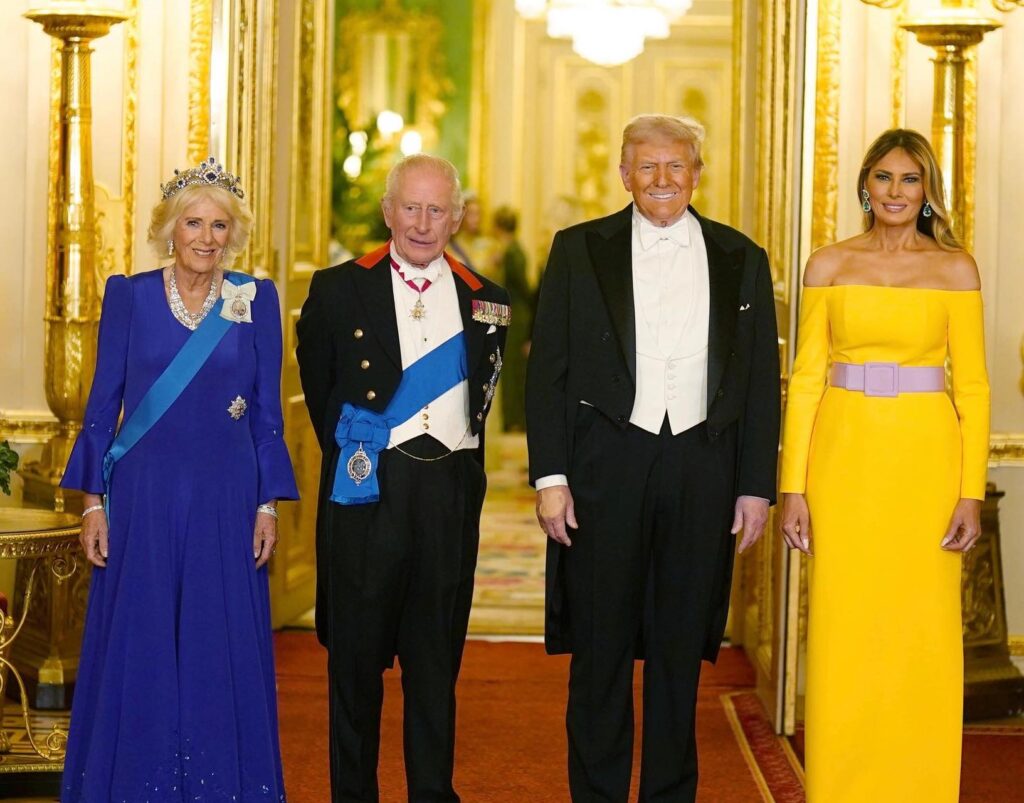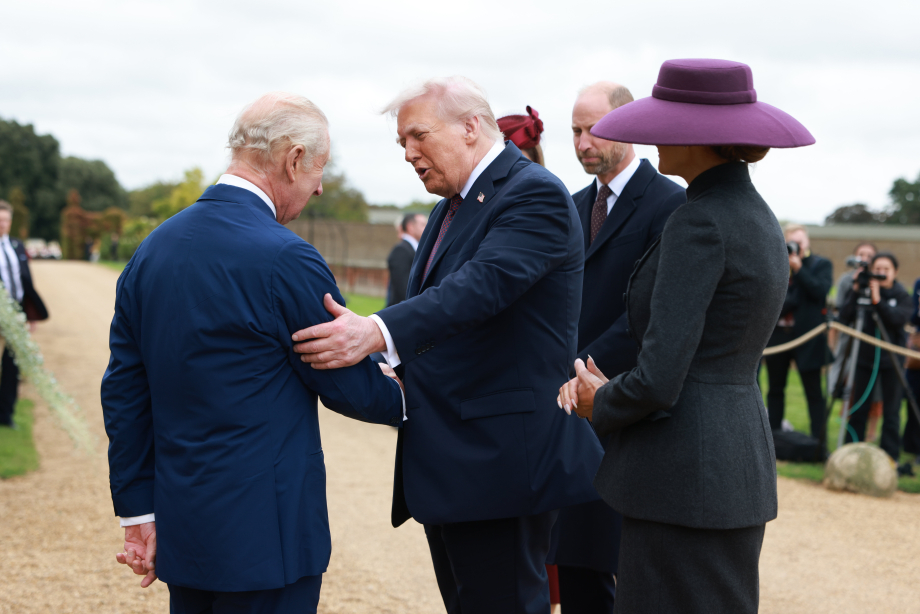US President Donald Trump’s unprecedented second state visit to the United Kingdom blended royal pageantry, high-level diplomacy, and major investment announcements, while simultaneously facing a wave of public protests and controversy.

At Windsor Castle, Trump and First Lady Melania were received with full ceremonial honours by King Charles III and Queen Camilla. The day’s pageantry featured a carriage procession, a Royal Salute, and the inspection of a Guard of Honour drawn from all branches of the armed forces, according to Reuters and the Associated Press.
At a state banquet inside the castle, Trump called the invitation “one of the highest honours of my life” and lauded the UK-US “special relationship,” language echoed by the King as both men stressed historic ties and shared priorities.
Beyond the ceremonial sequence, the visit was explicitly transactional.
The British and US governments used the occasion to announce sweeping commercial commitments — what ministers described as a record inward investment package that included multibillion-pound pledges from technology and private-equity firms as part of a new tech and industry partnership.
Officials said, according to media reports, the package would help finance projects in AI, quantum computing and civil nuclear energy, and create thousands of jobs — a central aim of Prime Minister Keir Starmer’s bid to reset Britain’s economic fortunes.
The UK-US relationship is delivering jobs, investment, and security for the British people. pic.twitter.com/QLMkeHf9Pv
— Keir Starmer (@Keir_Starmer) September 17, 2025
Diplomacy on the margins of the pomp remained high on the agenda.
Trump was due to hold a bilateral meeting with Prime Minister Keir Starmer at Chequers and to discuss foreign policy priorities including Ukraine and Israel, as well as trade, tariffs and deeper transatlantic cooperation on emerging technologies.
Whitehall ministers framed the visit as an opportunity to convert ceremonial goodwill into concrete policy and investment outcomes.
Anti-Trump protests
But the state visit also exposed deep public divisions. Thousands of demonstrators rallied in central London and in Windsor under slogans such as “Trump not welcome,” organised by groups including the Stop Trump Coalition, Amnesty International allies and other campaigners.
Protest activity ranged from large street marches outside Parliament to targeted stunts: activists projected images linking Trump to the disgraced financier Jeffrey Epstein onto the walls of Windsor Castle.
Thousands lining the streets of London protesting against Donald Trump’s state visit. I’ve got the latest live on @GBNEWS pic.twitter.com/Q8BqXPUEv1
— Will Godley (@willgodley) September 17, 2025
Thousands marched through central London under banners such as “No to the racism, no to Trump,” and “Dump Trump,” voices amplified by campaign groups.
In Windsor, images linking Trump to convicted sex offender Jeffrey Epstein were projected onto the castle walls. Four people were arrested in relation to that stunt.
Security and optics were closely managed: the ceremonial elements were staged to highlight continuity and state ritual while ministers sought to avoid letting disruptive protests eclipse diplomatic objectives.

Media and opposition figures posed uncomfortable questions about hosting a polarising leader, the handling of protests and whether symbolic gestures would translate into lasting policy gains.
Polling during the visit showed a sharply split public mood, with a substantial portion of the British public opposing the invitation.
A YouGov poll taken during the visit showed 45 percent of Britons objected to the state invitation, while about 30 percent supported it, demonstrating a sharply divided public mood.
What to watch next?
It remains to be seen if the announced investment pledges become legally binding contracts and deliver jobs and projects on the ground; how the UK and US navigate contentious issues raised by protesters (including Epstein-linked allegations and human-rights concerns); and what, if any, domestic political payoff Prime Minister Starmer secures from staging the visit amid visible public opposition.


